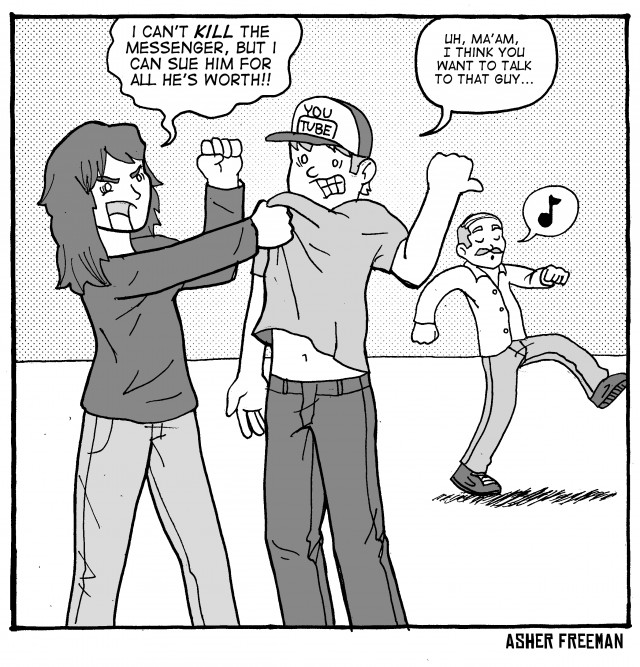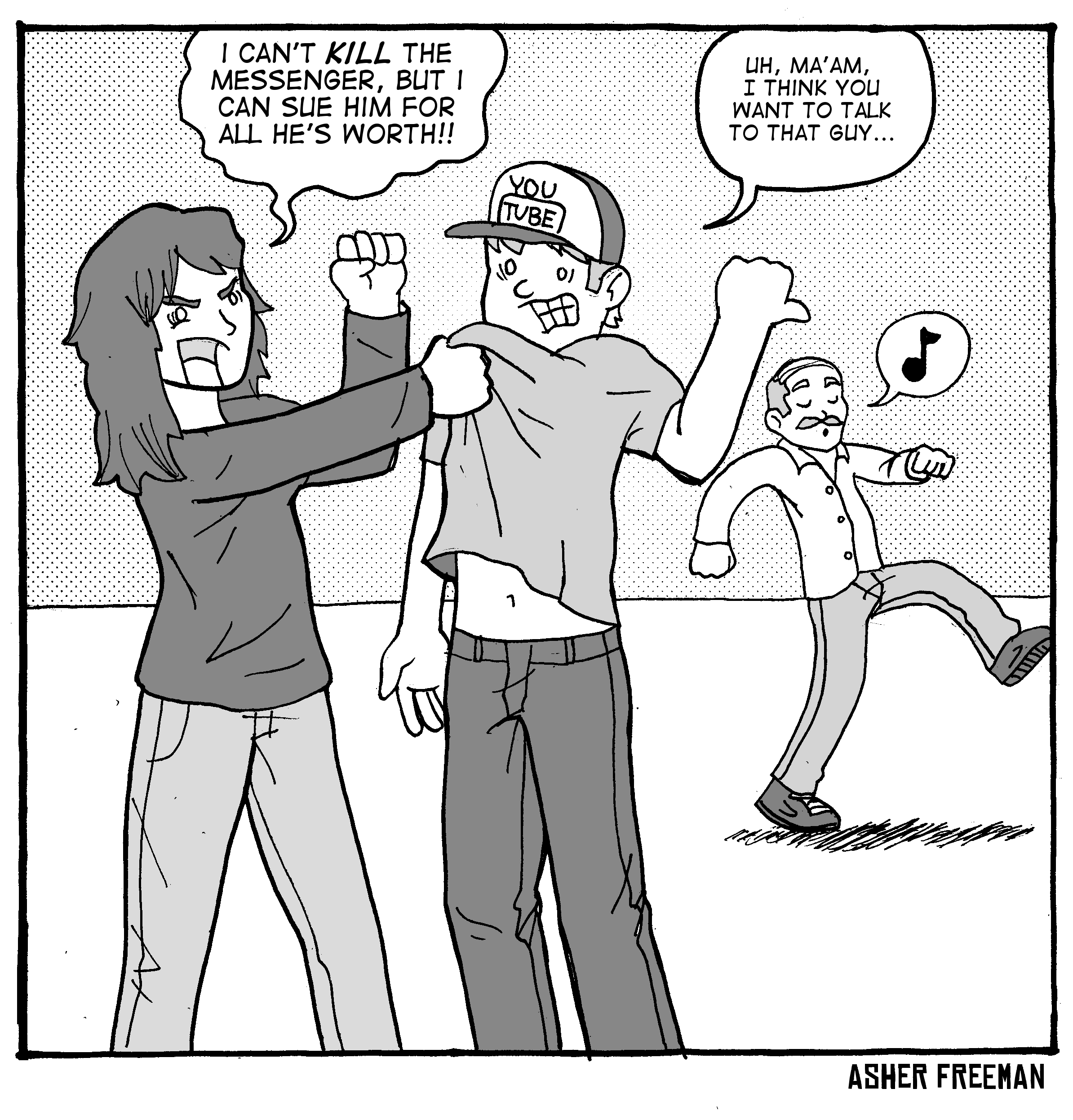 A woman appears on the screen in apparent distress. Her mouth moves, but the words don’t match up. It’s like a bad Kung Fu movie.
A woman appears on the screen in apparent distress. Her mouth moves, but the words don’t match up. It’s like a bad Kung Fu movie.
“Is your Muhammad a child molester?” the voice asks. The scene lasts about five seconds before it changes. We don’t see the woman again.
The scene is from the anti-Islamic film “Innocence of Muslims,” and the woman is actress Cindy Lee Garcia.
The film has sparked protests and violent demonstrations around the world for its anti-Muhammad statements and portrayals.
Garcia, however, was unaware that she was going to be in an anti-Islamic film.
Originally, she thought she was in a film with the working title “Desert Warrior,” another film by the same director, Nakoula Basseley Nakoula, a two-time felon. Her words were dubbed over for the “Innocence of Muslims” film, and “Desert Warrior” never saw the light of day.
Her participation in the anti-Islamic film, however unintentional, brought death threats to her door.
Because of these threats, Garcia asked YouTube to pull the video from its website. YouTube privately informed Garcia that it would not voluntarily remove the video.
In return, she filed a lawsuit in the Los Angeles Superior Court against Nakoula with the claim she was a victim of fraud, invasion of privacy and misappropriation of her likeness.
Garcia’s claims seem valid, and the lawsuit seems like a good idea until Garcia also named YouTube LLC and Google Inc., YouTube’s parent company, in the suit for causing irreparable harm to her for refusing to remove the content.
A judge denied this lawsuit because Garcia was unable to produce a copy of her agreement with the filmmakers, and the filmmakers had not been notified of the lawsuit.
On Sept. 26, 2012, Garcia brought her lawsuit to federal court. This time, however, she included the claim that Nakoula had violated copyright law. The suit claims infringement of copyright, fraud, unfair business practice, libel and infliction of emotional distress.
Again, however, the suit names YouTube and Google in Garcia’s infringement complaints.
And, again, Google refused to remove the film from YouTube, regardless of pressure from the Obama administration. Garcia claims Google infringed on the copyright she has for the film by distributing the video via YouTube.
The 9th U.S. Circuit Court of Appeals ruled Wednesday that Google must remove the film “Innocence of Muslims” from YouTube.
Judge Alex Kozinski wrote the majority opinion on the decision and said because of Garcia’s reception of death threats it was better to err on the side of life.
Google officials released a statement that read, “We strongly disagree with this ruling and will fight it.” The film has been removed from the site.
While we do not condone the material and messages in the film, we disagree with the claim that Google infringed on Garcia’s copyright.
The emotional distress Garcia has suffered since the video’s publication seems valid. Her case is sympathetic and she deserves justice.
However, that justice should come from the film’s producer and not Google, which was merely an outlet the producer used to spread views of the film.
Google argued during trial, and correctly so, that she did not make a protectable contribution to the film. Her appearance, not her words, was the only thing used in the film. The script was written by Nakoula, who holds the copyright for the dialogue.
According to copyright protection laws, the actor’s performance can only be copyrightable if it is original.
Originality means the performance must express some degree of creativity.
YouTube is an outlet for a variety of content, including videos that contain hate speech, but it is not an advocate for the messages from said videos. Google cited the First Amendment right to free speech for its customers as the reason it refused to remove the video.
This ruling calls to question what future cases like this will look like. Will everyone who dislikes their portrayal in a video be able to sue and win?
The problem is that Google is not responsible for the content beyond the fact it was uploaded to its website.
The only reason Google pulls content is if it is copyright protected, and according to Google, Garcia’s role in the film is not enough to justify a copyright.
Five seconds and dubbed dialogue, however ethically wrong, do not give Garcia an argument against Google.
In essence, the court has censored a website.
YouTube’s rules on copyright usage state that any material thought to be an infringement of copyright will be blocked from viewers on the site. However, Garcia’s failure to produce an agreement with Nakoula makes her claims to copyright void from the side of Google and YouTube.
In addition, Nakoula is the main person who should have been targeted in the lawsuit in order to remove the video.
While the decision made by the appeals court is preliminary, Google should continue to fight.






